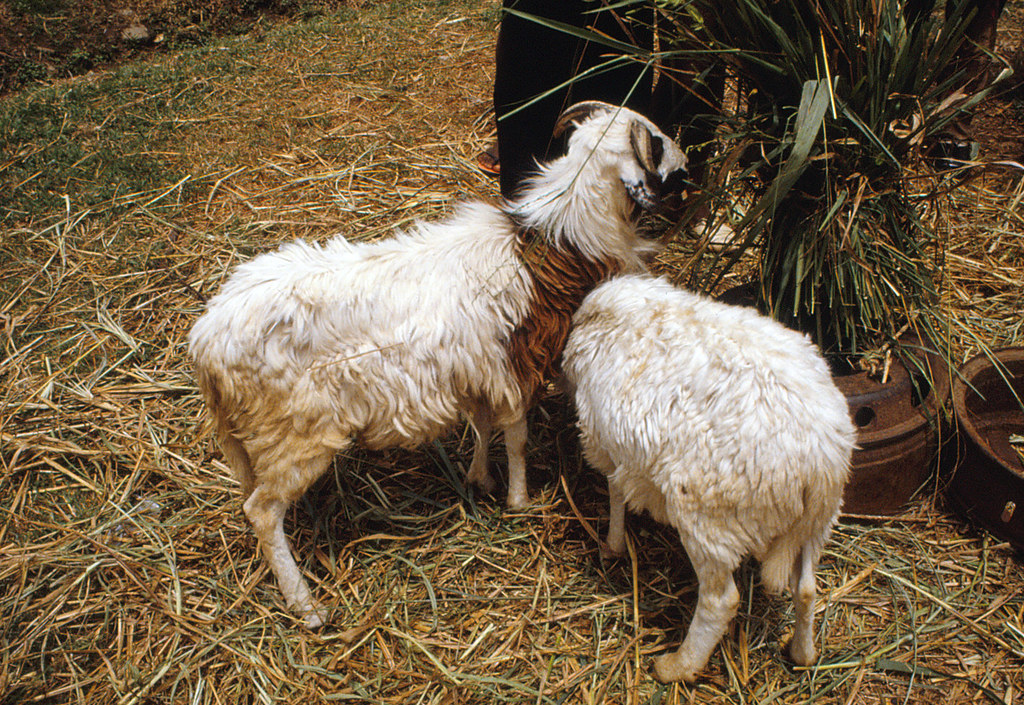The West African Dwarf or Djallonké is an African breed or group of breeds of domestic sheep. It is the dominant breed of West and Central Africa. This breed is primarily raised for meat.
Characteristics
The West African Dwarf is generally white or piebald, the front half being black and the back half white. However, skewbald (tan on white) and the black belly pattern are found, and the Kirdi type is specially selected to be entirely black. Rams weigh approximately 37 kg (82 lb), have a well-developed throat ruff and are usually horned. The horns are wide at the base, curve backwards, outwards and then forwards again, with a maximum of one and a half coils. Ewes weigh about 25 kg (55 lb) and are usually polled (hornless), but may have slender short horns. The ears are short and pendulous, the neck is long and slender, the chest is deep, the legs are short, the back is long and dished, higher at the withers than at the tail-head, and the tail reaches the hocks.
On average, ewes produce 1.15 to 1.50 lambs per lambing. This breed grows slowly as evaluated in Nigeria in the last 1970s. The overall growth rates from 0–90, 91–150 and 151–350 days old were 74, 49 and 34 g/day, respectively. This breed is also highly tolerant of trypanosome. This breed is thought to go into oestrus throughout the year.
Distribution
The West African Dwarf sheep is found in West Africa, its range extending from Senegal to Chad, Gabon, Cameroon and the Republic of the Congo. It is adapted for life in humid forested areas, sub-humid areas and savannahs. The Kirdi or Poulfouli is a wholly black variant found in northern Cameroon and southwestern Chad.
During the colonial era, German and French rulers exported West African Dwarf sheep or (Djallonké) to France and Germany. These usually ended up in private collections and zoos. The animals selected for export to Europe were almost all of the black belly colour type. The chestnut-coloured drawing is not prevalent in the Djallonké, but only one of many. Today these sheep are called Cameroon sheep or Cameroon Dwarf sheep in Europe and incorrectly regarded as a separate breed. The International West African Dwarf Specialist Group of the African Ornamental Breeders Association (AOBA) considers what Europeans call the Cameroon sheep just a colour type and not a separate breed.
